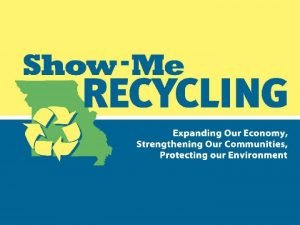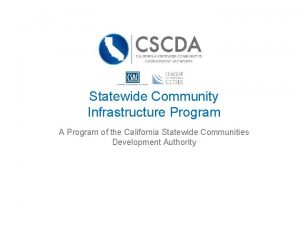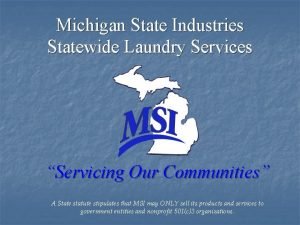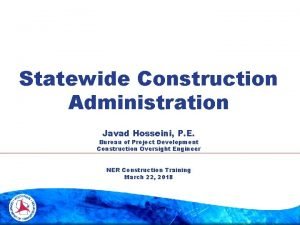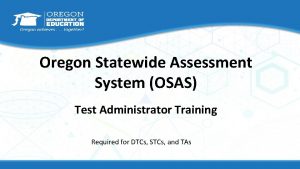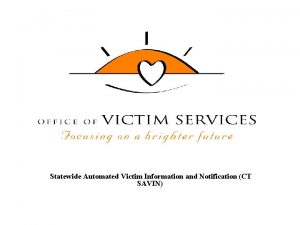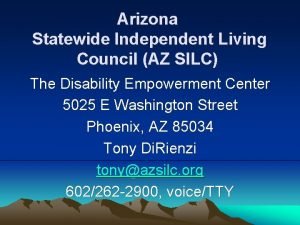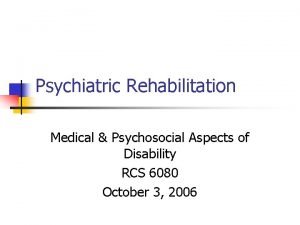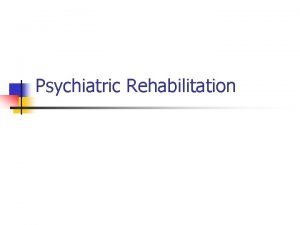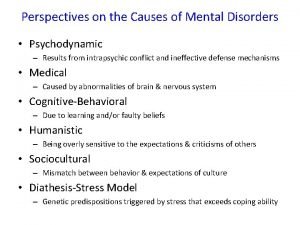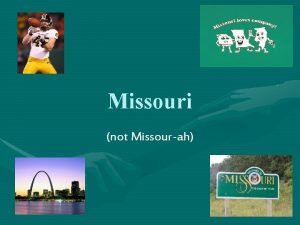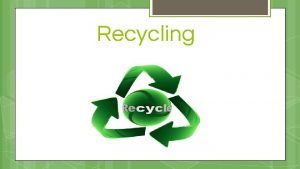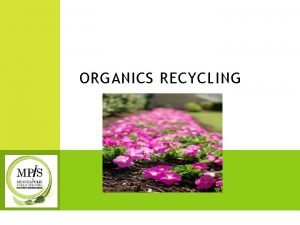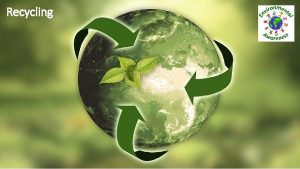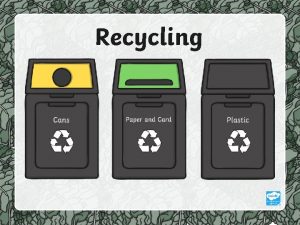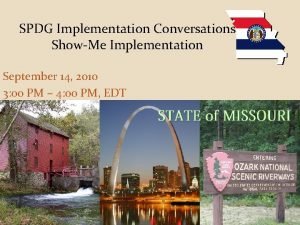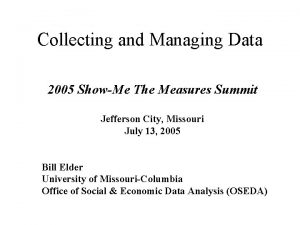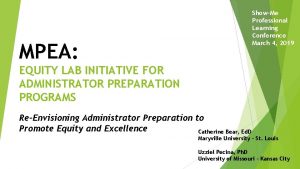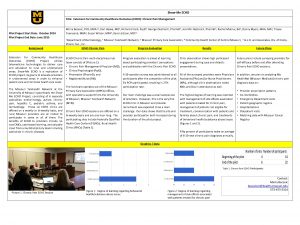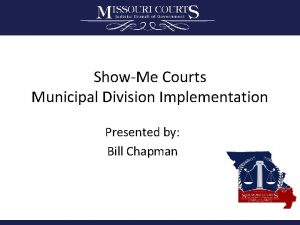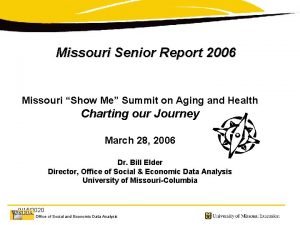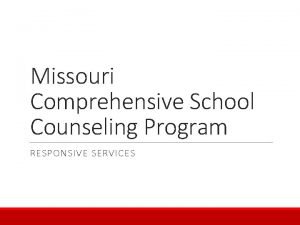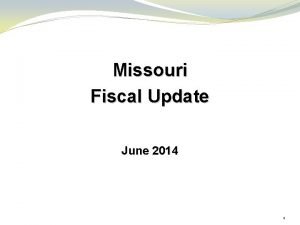ShowMe Recycling The Missouri Recycling Associations statewide education





















- Slides: 21


Show-Me Recycling The Missouri Recycling Association’s statewide education campaign that showcases sustainable programs that improve the economy and community as well as benefit the environment.

Why is this important? Recycling in Missouri is: • Expanding our economy • Strengthening our communities; and • Protecting our environment!

Missouri Perspective SB 530 Passed in 1990 • Banned certain materials from landfills • Created regional solid waste management districts • Created a solid waste management fund to finance the growth of waste reduction and recycling programs.

Since 1990 • MO waste diversion increased from less than 5% to 44% in 2007. • Appr. $70 mil. Invested in MO’s recycling infrastructure ($1/person/year) • Unprecedented cooperation among public, private and non-profit communities to create and deliver programs in MO

Investment is paying off • Manufacturing with recycled materials saves energy and water and produces less air and water pollution than manufacturing with virgin materials. 75% of Missourians report they recycle! • According to a report in Progressive Investor (Huntington Station, New York), the recycling industry accounted for approximately two percent of the U. S. gross domestic product in 2007, with $236 billion in revenues …

Recycling stimulates economic development by reducing costs and generating resources to create good jobs and generate new tax revenues.

Expanding Missouri’s Economy • MO’s recycling industry employs 28, 000+ people with an annual payroll of $700+ million and impacts MO’s economy by $10+ billion per year. • MO companies rely on recycling programs to provide the raw materials they need to make new products

EXAMPLE: Nestle Purina Pet. Care (Springfield) • Recycled 12, 000 tons waste paper into pet litter in 2006 • 30+ full time employees • Impacts local economy by $3+ million

Recycling stimulates civic pride, promotes volunteerism, and fosters collaboration to improve the quality of life in Missouri communities.

Strengthening Communities • Recycling is often a catalyst for community betterment. • Citizen groups organize around recycling, improving services and creating a sense of neighborhood.

EXAMPLE: Neighbors Assisting Neighbors (St. Louis County) • 146 volunteers reduced mosquito breeding sites through community education and tire cleanup. • Effort reached 25, 525 homes in 23 communities

Recycling saves energy, reduces pollution, saves natural resources, and reduces green house gas emissions to help secure Missouri’s future.

Protecting Misouri’s Environment Recycling in Missouri • Saves Energy • Conserves Resources • Preserves Landfill space • Reduces Greenhouse Gas Emissions • Reduces Water Pollution • Protects Wildlife

EXAMPLE: Galamba Metals Group, LLC (Kansas City) Compared to virgin ore, recycling scrap metal accounts for: • 80% less air pollution • 40% less water used • 76% less water pollution • 97% less mining waste • 105% less consumer waste

Challenges • Missourians generate 6. 15 lbs of waste daily, 37% above the national average

Challenges • Less resources available to grow programs • Insufficient recycling opportunities for all citizens • Insufficient capacity to handle changing needs (electronics)

Opportunities • 45% (1. 9 million tons/yr) of municipal waste deposited in Missouri’s landfills is recyclable • If recycled, the potential economic value of these materials is appr. $208 million.

Opportunities • As additional materials are collected, there is a strong potential to attract manufacturers who can use these resources. • This can increase jobs, payrolls, tax revenues and multiply to support other parts of our economy

Missouri’s recycling industry expands our local economies, strengthens our communities, and protects our environment to help secure Missouri’s future.

Show-Me Recycling Partners Funding for the Show-Me Recycling education campaign was provided by: MORA EPA Region 7 St. Louis-Jefferson Solid Waste Management District Missouri Department of Natural Resources Mid Mo. Solid Waste Management District Region K
 Missouri recycling association
Missouri recycling association Hawaii statewide assessment program
Hawaii statewide assessment program Nova payee services
Nova payee services Statewide health insurance benefits advisors
Statewide health insurance benefits advisors New york statewide senior action council
New york statewide senior action council Statewide community infrastructure program
Statewide community infrastructure program Michigan state industries
Michigan state industries Texas savns
Texas savns Statewide construction and development
Statewide construction and development Statewide benefits
Statewide benefits Tide osas
Tide osas Vinelink connecticut
Vinelink connecticut Arizona statewide independent living council
Arizona statewide independent living council Loose associations thought process
Loose associations thought process Loose thought process
Loose thought process Nigrostriatal pathway
Nigrostriatal pathway Example of loose associations in schizophrenia
Example of loose associations in schizophrenia Loose associations
Loose associations Grandiose thinking
Grandiose thinking Grandiose thinking
Grandiose thinking Classification of schizophrenia
Classification of schizophrenia Loose associations
Loose associations
